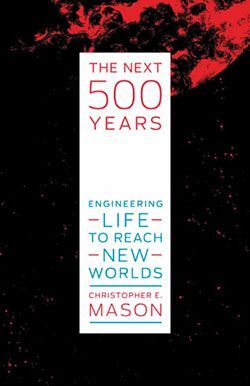New books & media
DOI: 10.1063/PT.3.4728
My Nuclear Life
My Nuclear Life, Shelly Lesher, host, 2020 (Season 1)
Nuclear physicist Shelly Lesher, a professor at the University of Wisconsin–La Crosse, hosts the podcast My Nuclear Life, which examines the intersection of atomic science and broader society. Its six-episode first season, which premiered in fall 2020, discusses such wide-ranging topics as startup companies building generation IV nuclear reactors; the Iran nuclear agreement, which the Trump administration withdrew from and which the Biden administration is considering rejoining; and the Manhattan Project. A particular highlight is the second episode, with nonfiction author Dan O’Neill covering the history of Project Chariot, the early 1960s plan to “excavate” a harbor in Alaska by detonating atomic bombs. The podcast’s second season began in March 2021. —

Rescuing the Planet: Protecting Half the Land to Heal the Earth
Rescuing the Planet: Protecting Half the Land to Heal the Earth, Tony Hiss, Knopf, 2021, $27.95
To counter the mass-extinction threat caused by humanity’s impact on the environment, a plan has been proposed to protect 50% of Earth’s natural land by 2050. In Rescuing the Planet, former New Yorker staff writer Tony Hiss focuses on efforts being made in North America to further that goal. A blend of biography, history, science, and travel, the book takes the reader on a journey to such wilderness areas as Canada’s Boreal Forest, the Appalachian Trail, the Southeast’s Piney Woods, and Yellowstone National Park. Hiss discusses their evolution, the plants and wildlife that live there, and some of the people who have worked over the years to conserve them. —

The Next 500 Years: Engineering Life to Reach New Worlds
The Next 500 Years: Engineering Life to Reach New Worlds, Christopher E. Mason, MIT Press, 2021, $29.95
Traveling into space and colonizing new planets is a necessary duty for humanity, writes geneticist and computational biologist Christopher E. Mason. Humans, alone among Earth’s species, understand that Earth’s life span is finite. Moreover, we have the technological capability to preserve life by transporting it elsewhere in the universe. But to do that, he says, we need to bioengineer it to survive in alien environments. In The Next 500 Years, Mason lays out a timeline for accomplishing such engineering on a genetic, cellular, planetary, and interstellar scale. His vision is ambitious, and his detailed descriptions of current science and what we have achieved so far bolster his expectations for the future. —

More about the authors
Ryan Dahn, rdahn@aip.org





